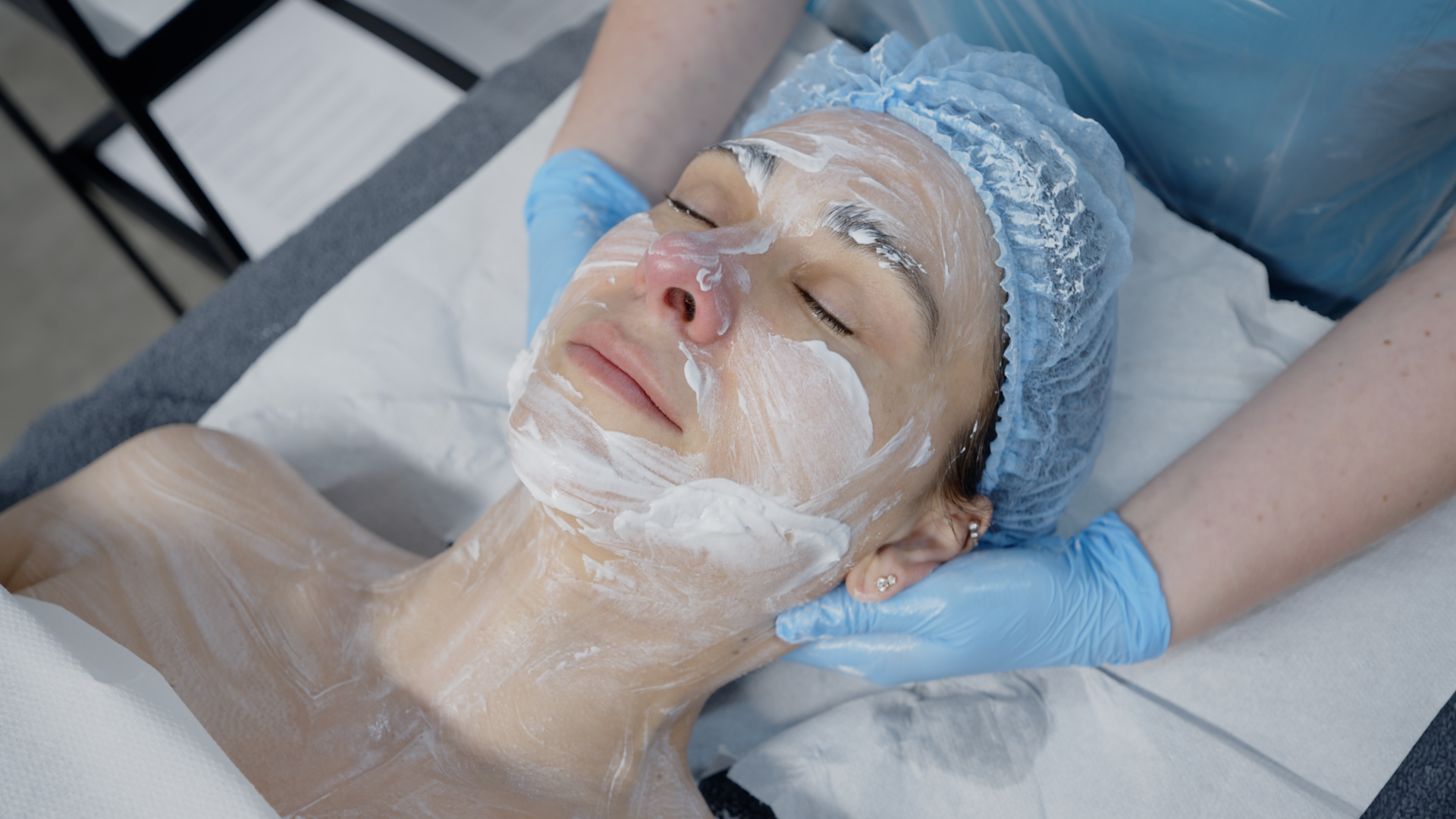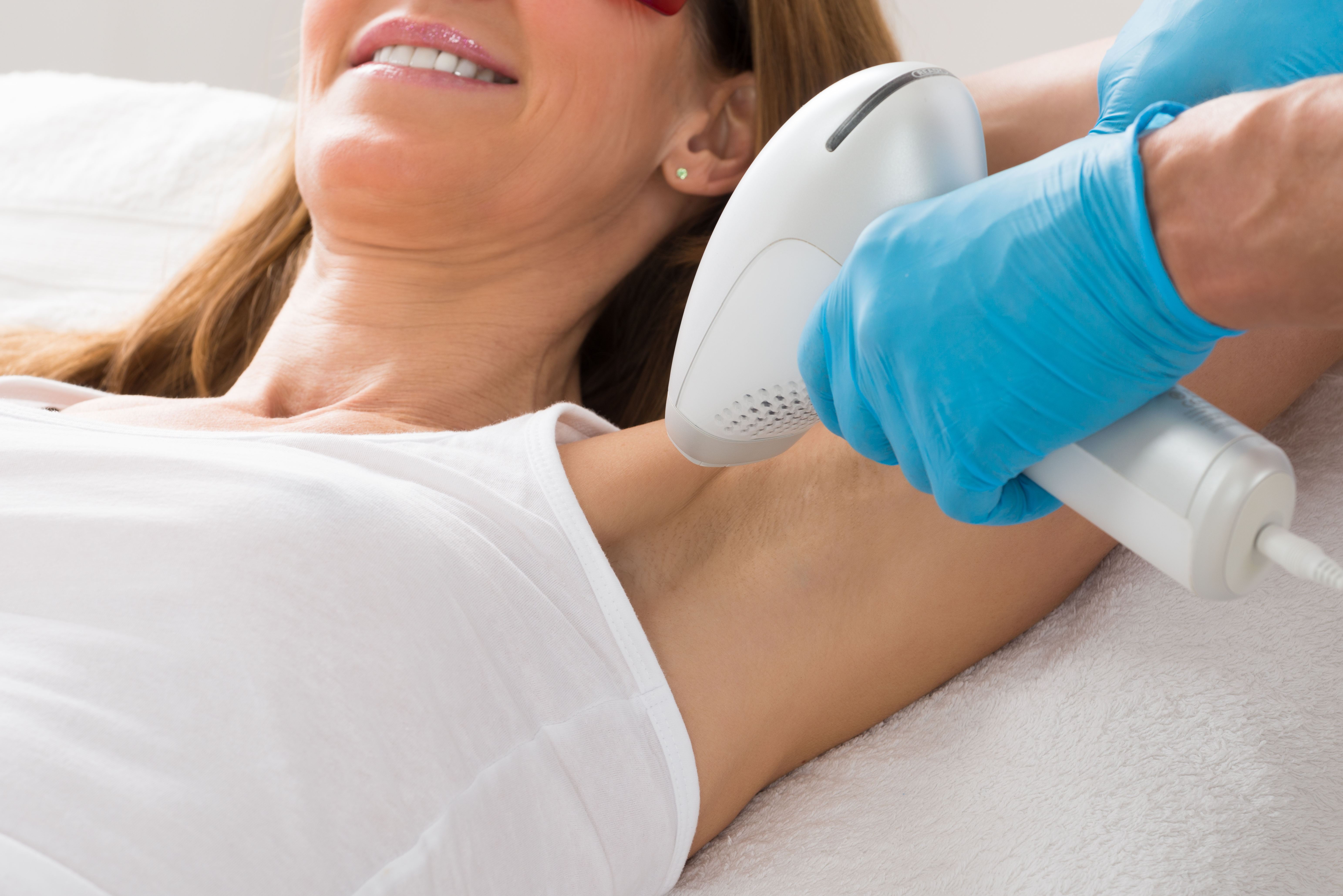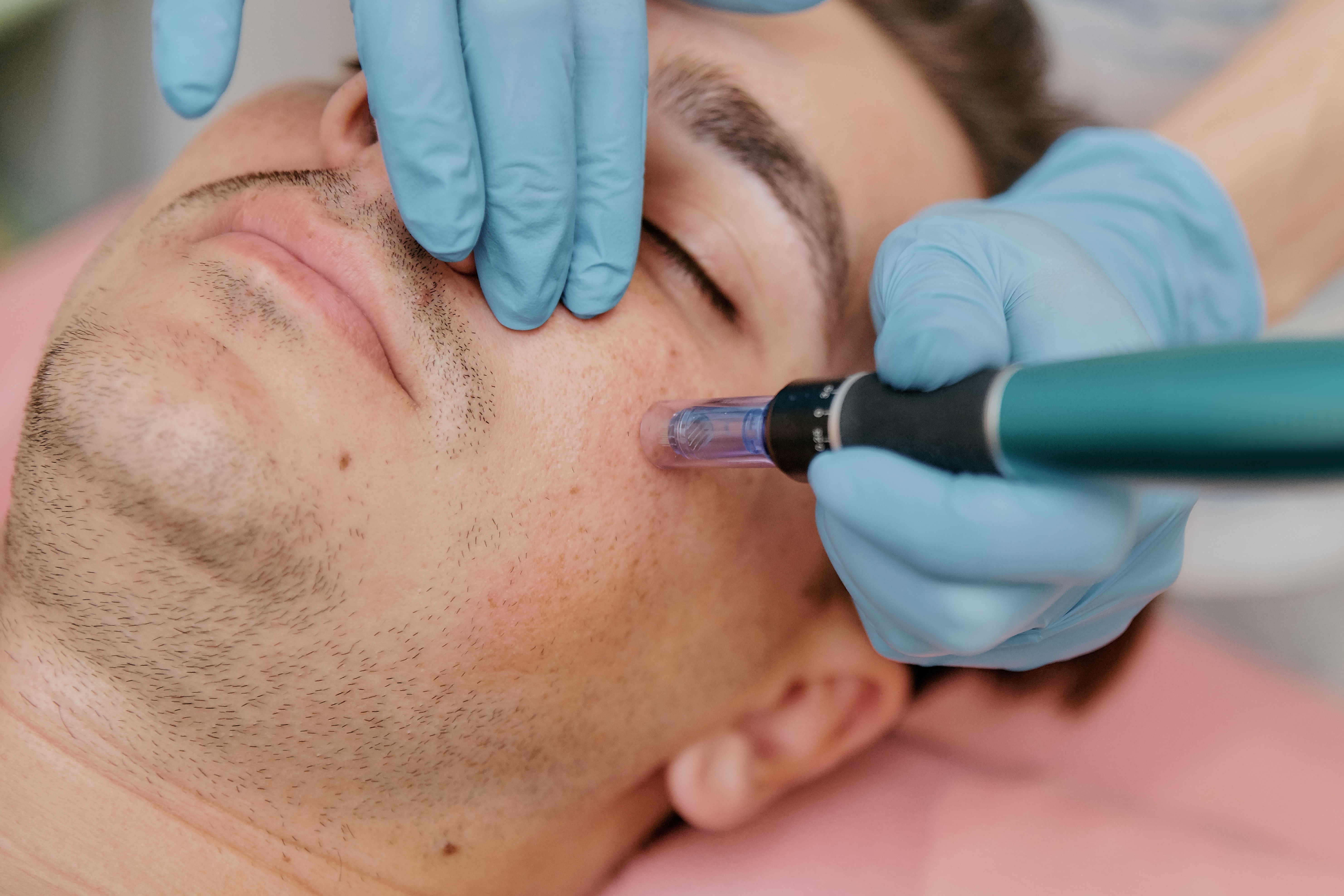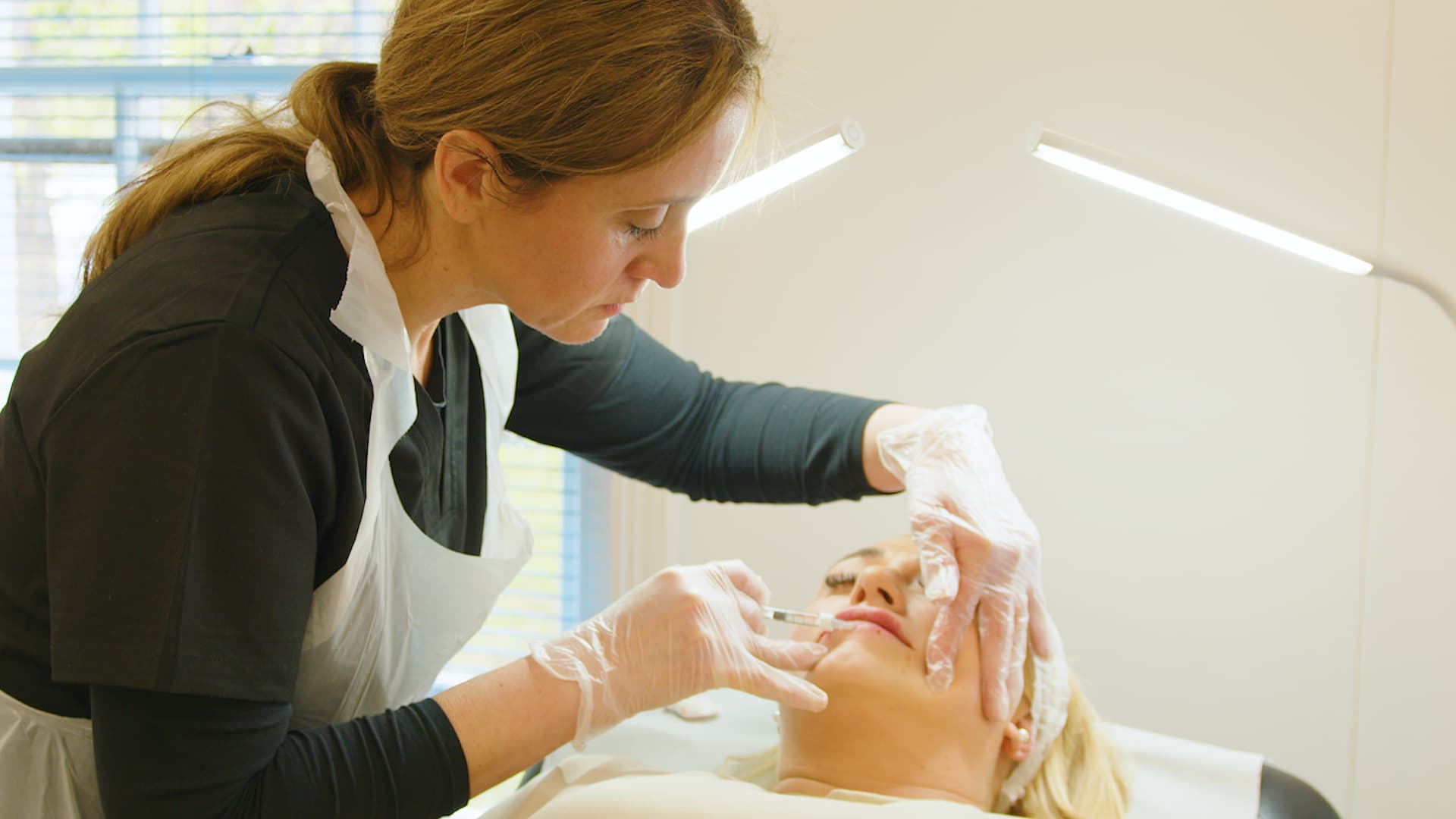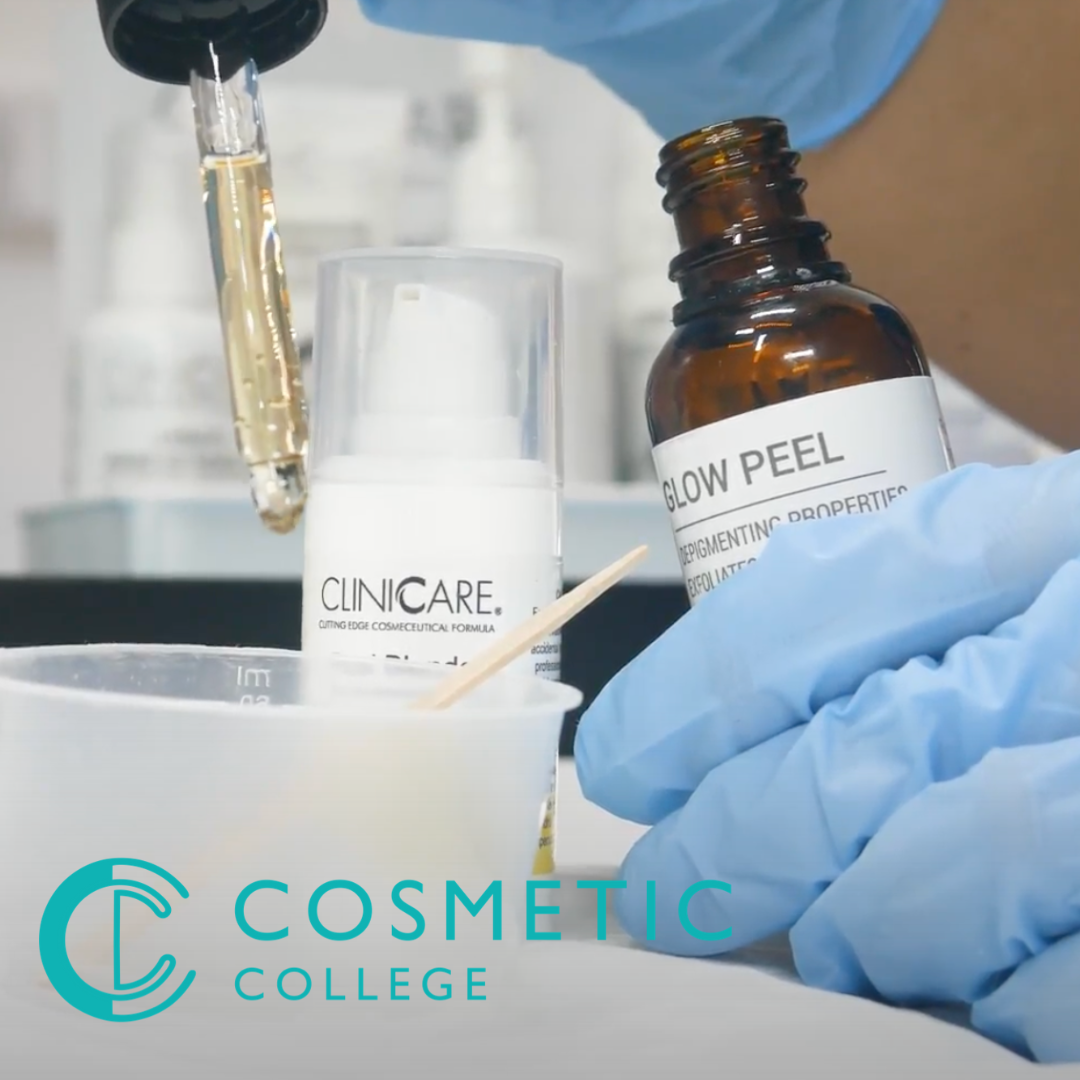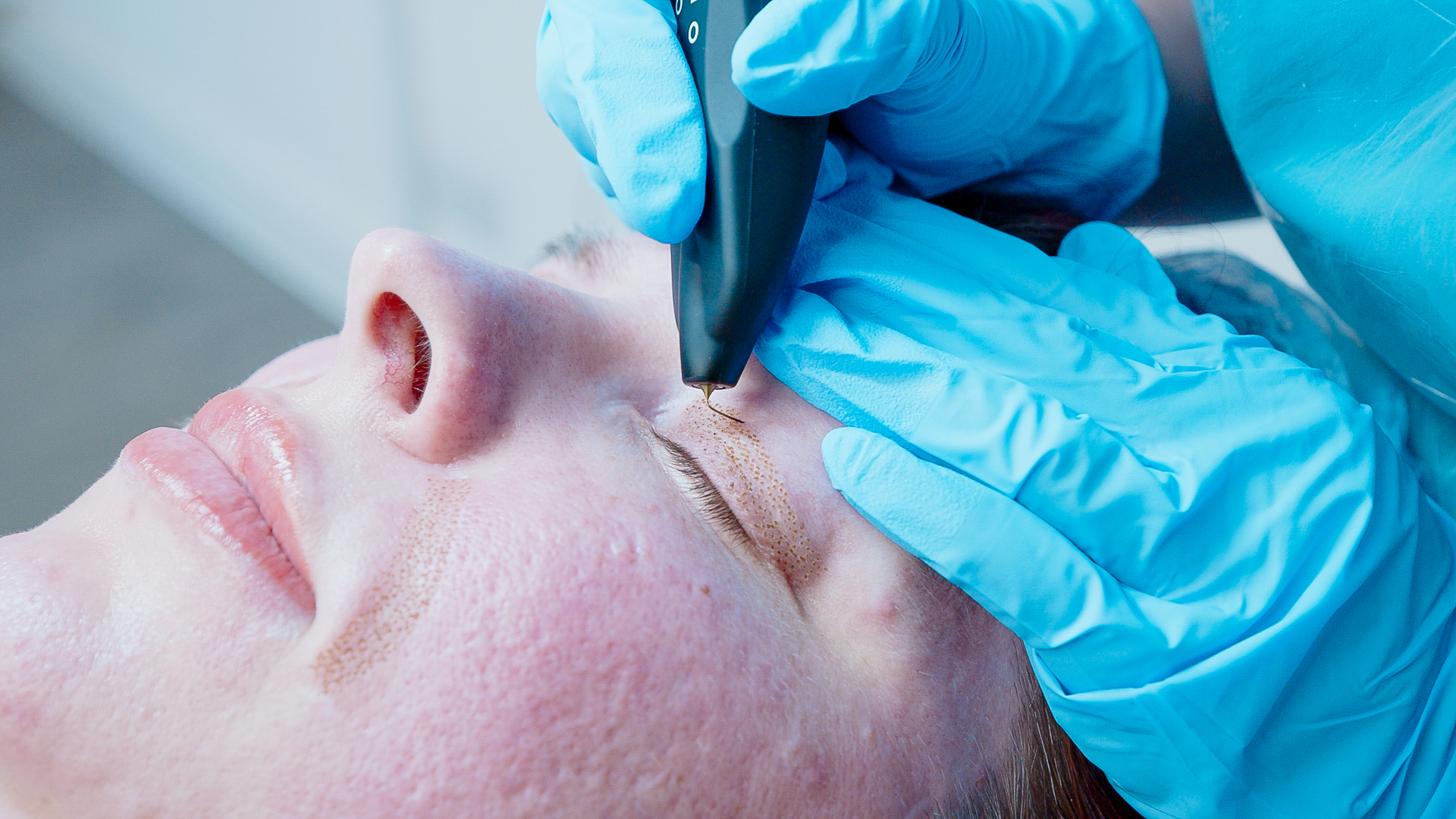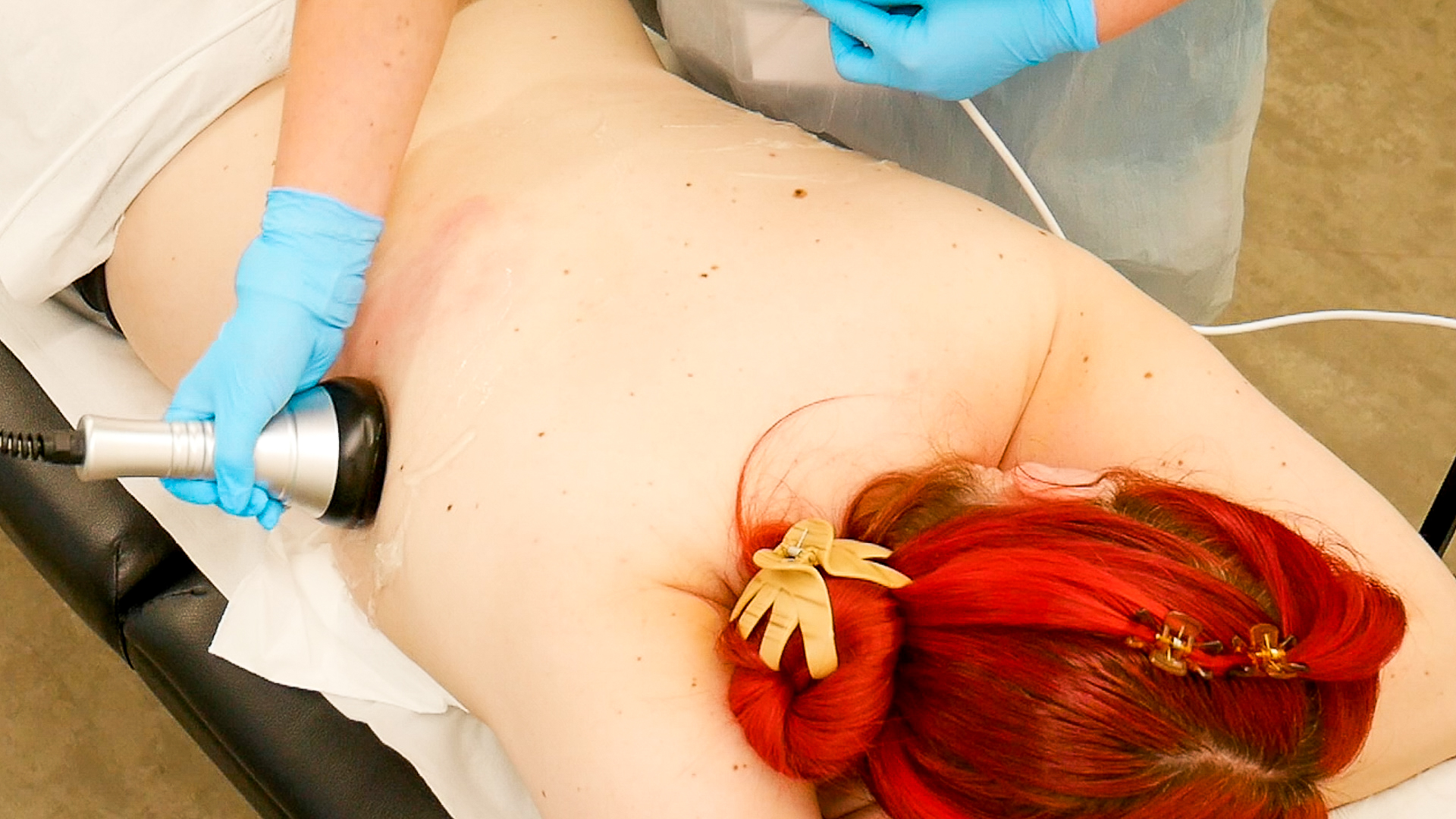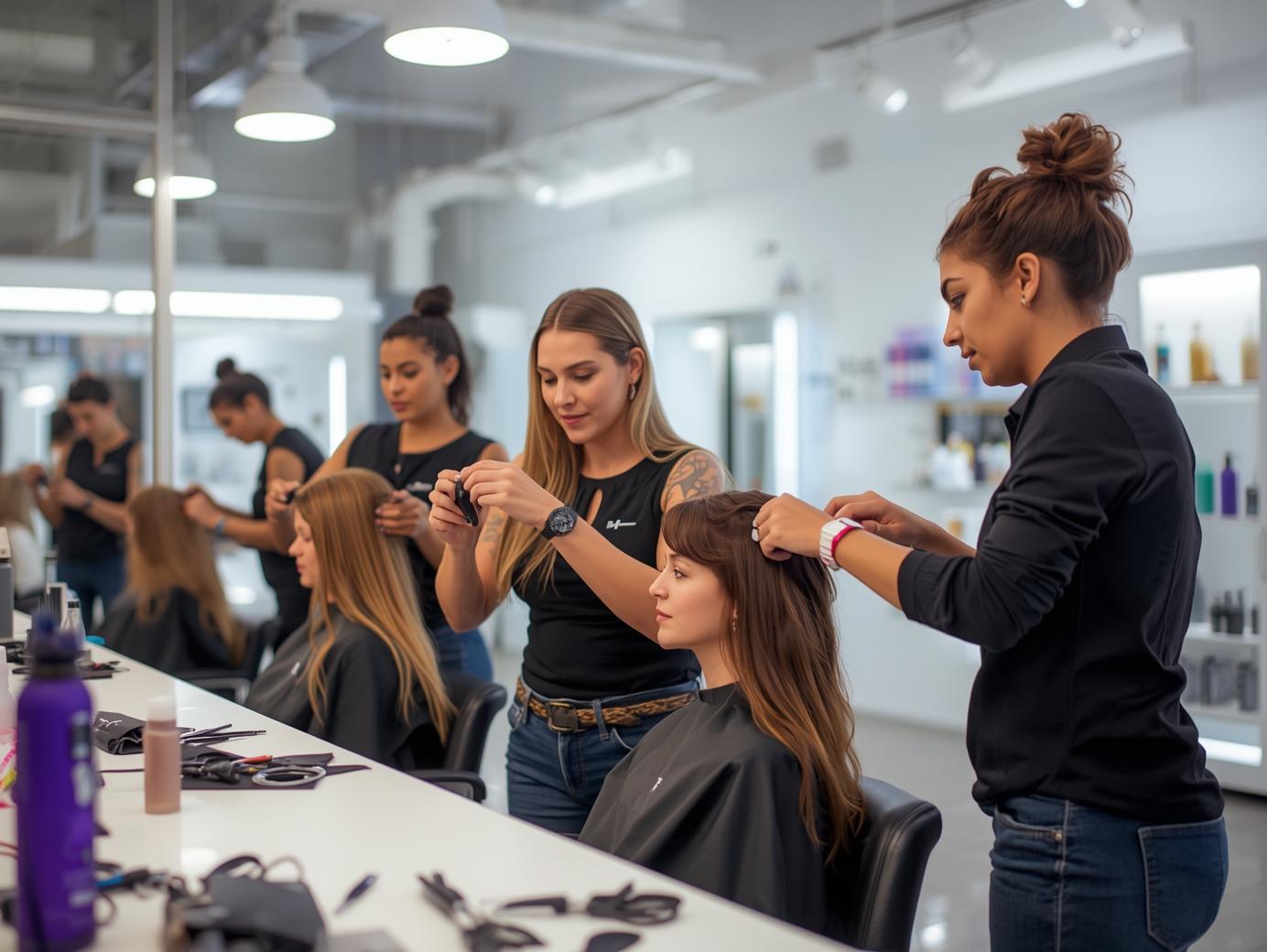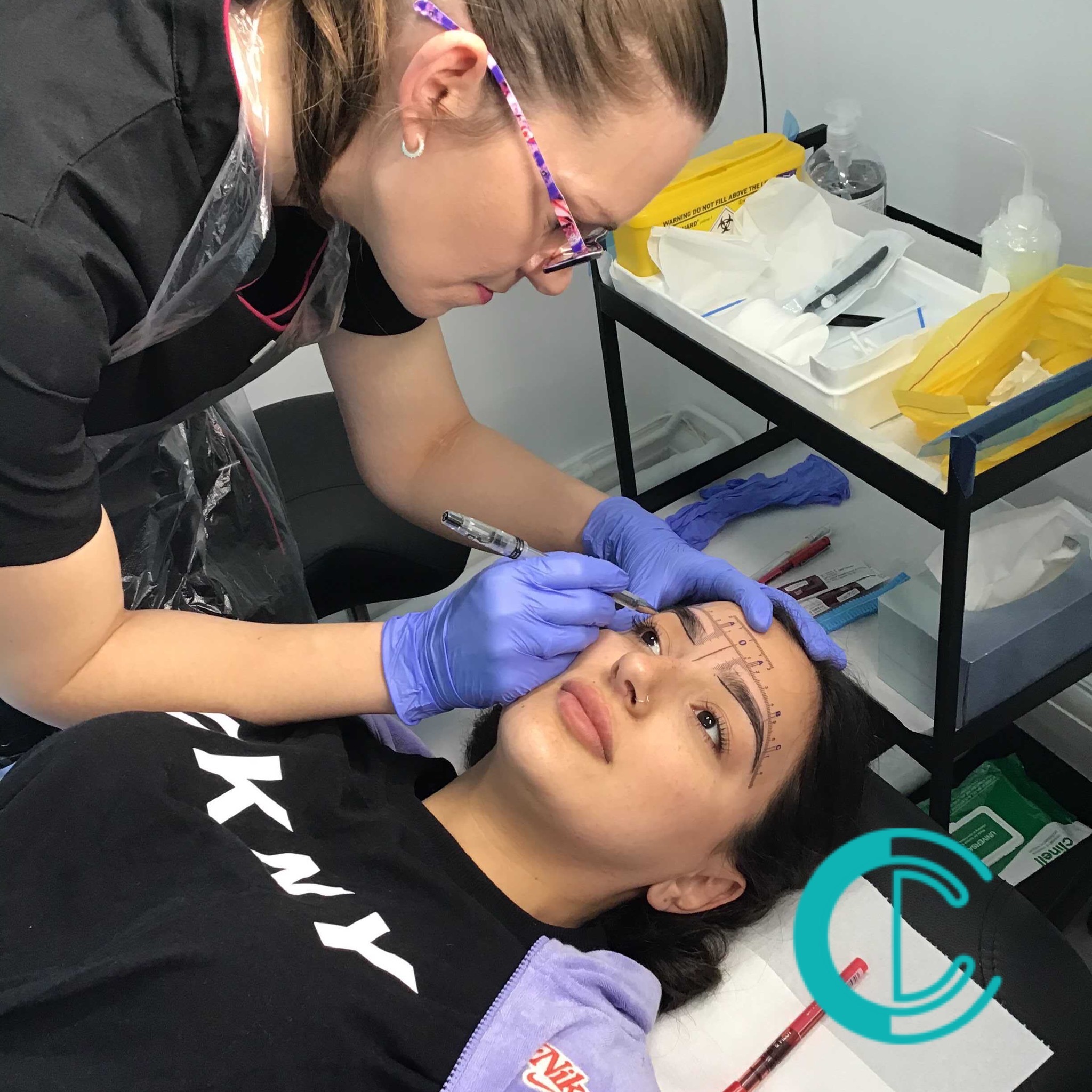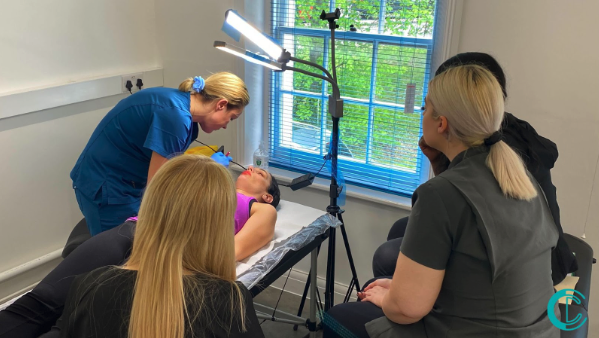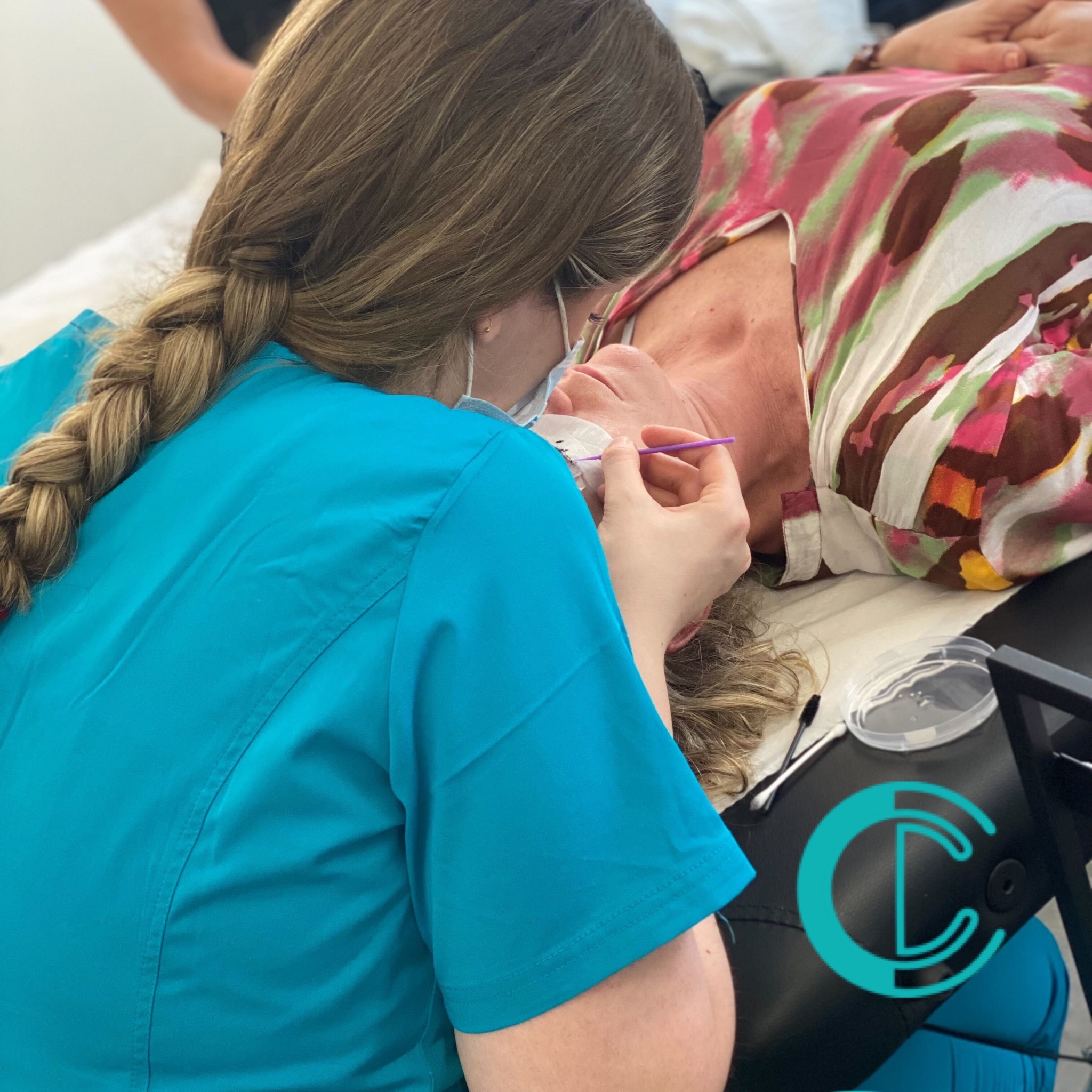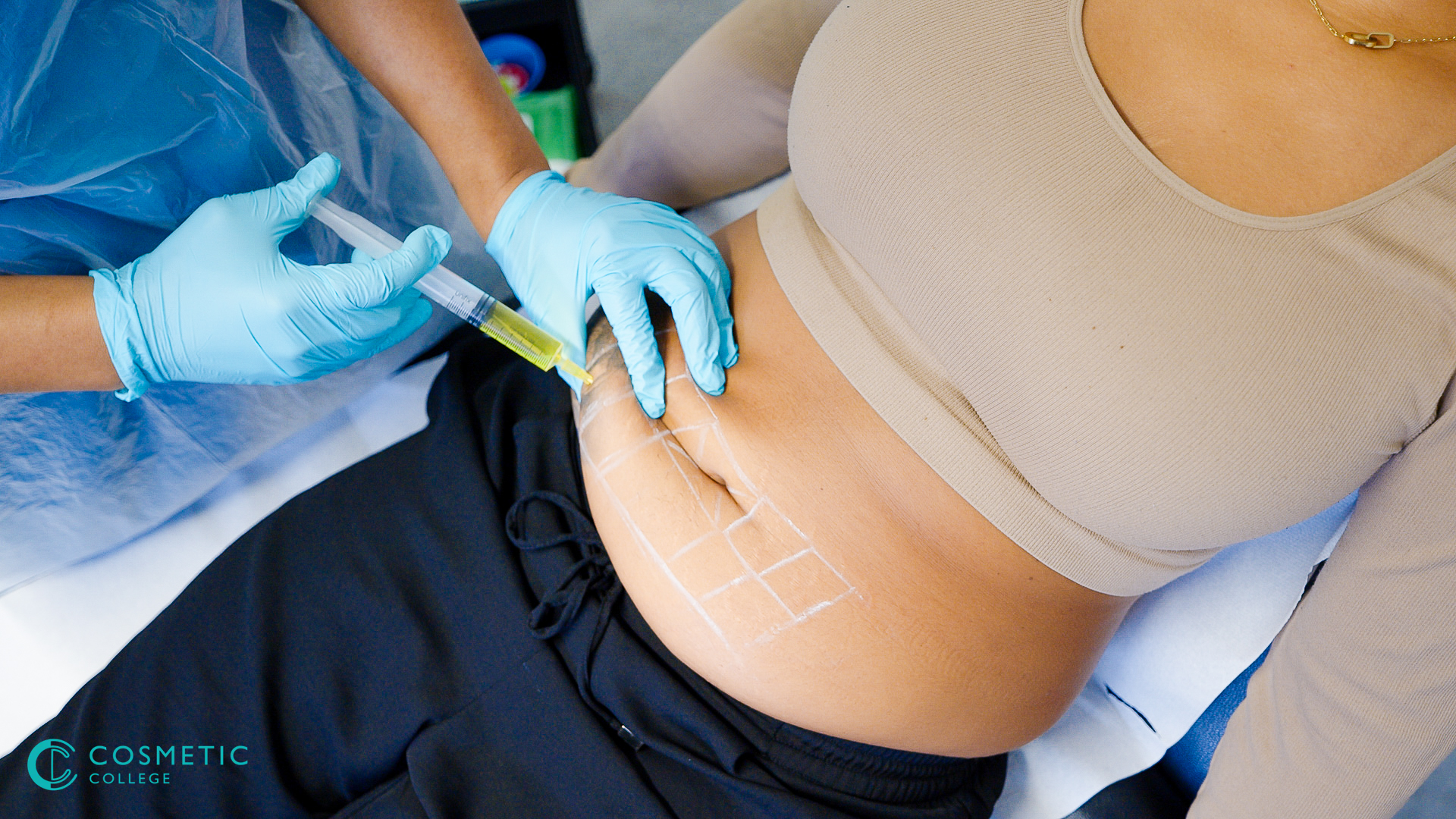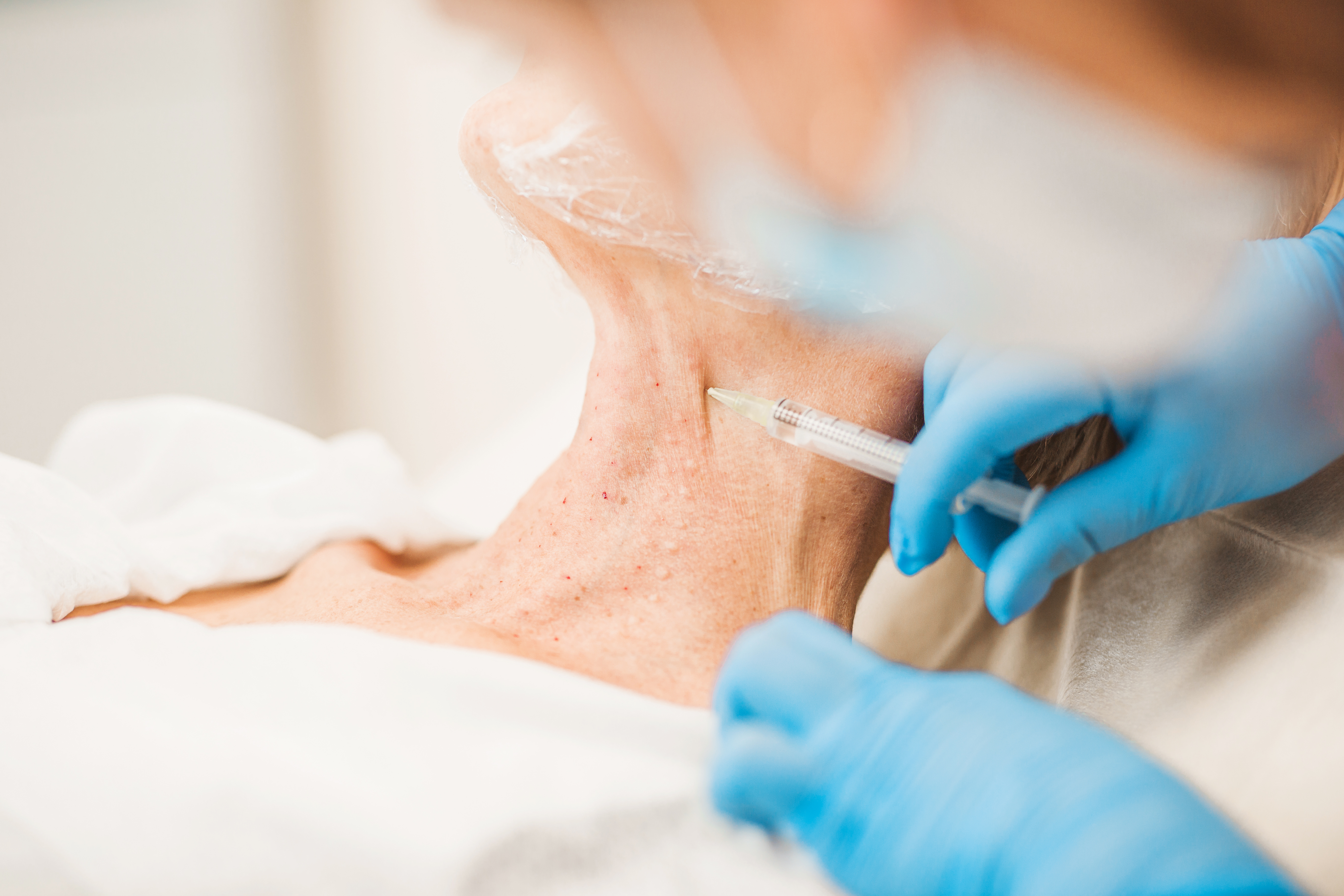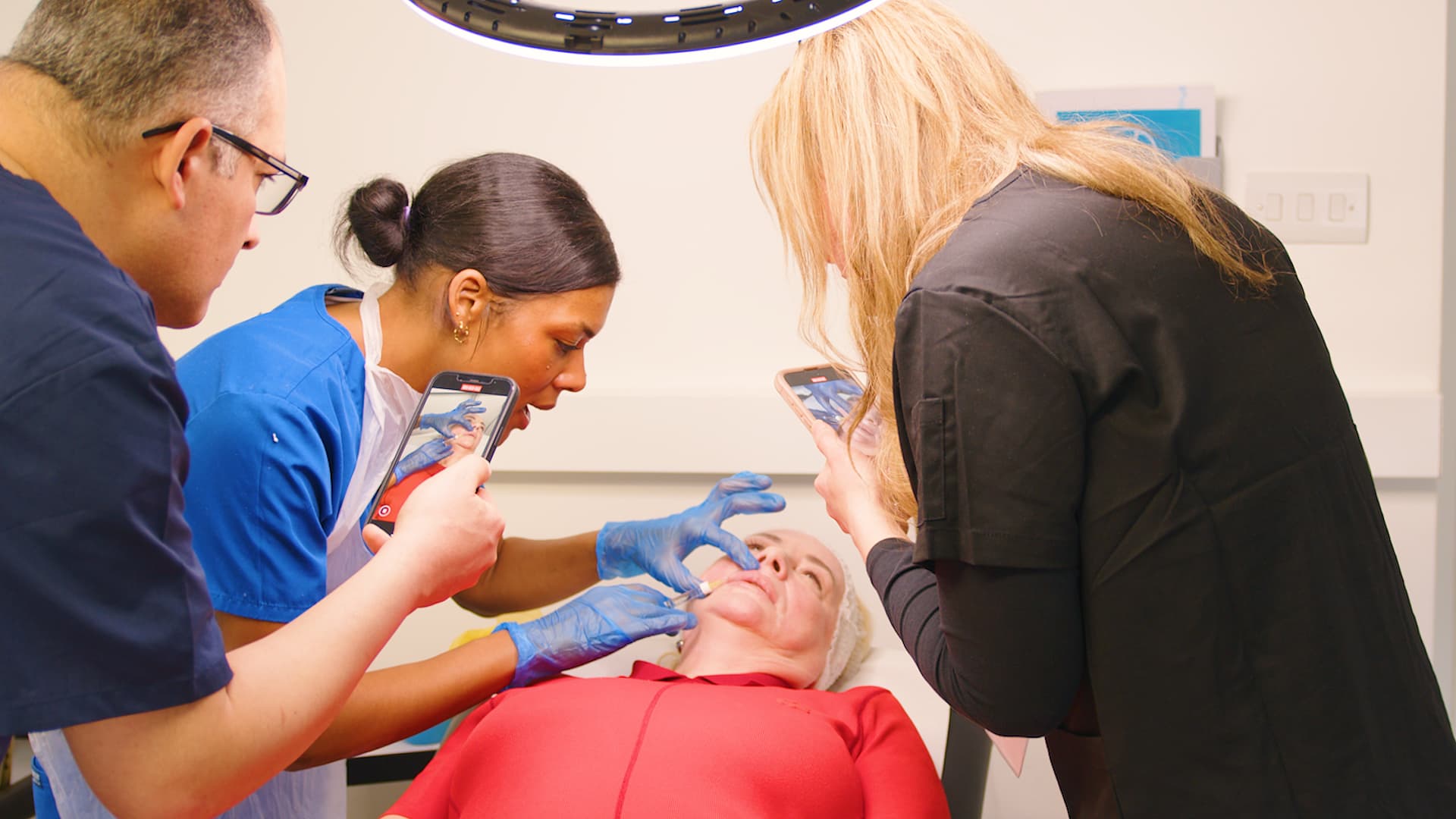
How to Become an Aesthetic Practitioner in the UK – Step-by-Step Guide
The aesthetics industry in the UK is thriving - now worth more than £3 billion annually and expanding rapidly as demand for non-surgical treatments continues to rise. From advanced skin rejuvenation to injectable procedures, clients are actively seeking qualified professionals who can deliver safe, evidence-based results.
Whether you’re a beauty therapist looking to advance your career or completely new to the field, there’s never been a better time to start. This step-by-step guide explains how to become an aesthetic practitioner in the UK - including the qualifications you’ll need, the training pathway to follow, and how to future-proof your career ahead of the government’s upcoming aesthetics licensing reforms.
Ready to begin? Request a Callback to speak with the Cosmetic College admissions team today.
Table of Contents
- What Does an Aesthetic Practitioner Do?
- Why Choose a Career in Aesthetics?
- Step 1: Meet the Entry Requirements
- Step 2: Choose the Right Qualification
- Step 3: Complete Accredited Training
- Step 4: Get Insurance and Register Professionally
- Step 5: Build Experience and Portfolio
- Step 6: Progress to Advanced Levels
- Step 7: Understand the Upcoming Aesthetics Licensing Reforms
- Step 8: Launch Your Own Aesthetics Business or Clinic
- FAQs About Becoming an Aesthetic Practitioner
- Final Thoughts
What Does an Aesthetic Practitioner Do?
An aesthetic practitioner is a highly trained professional who specialises in non-surgical cosmetic treatments that enhance, restore, or rejuvenate the skin and facial features. Their goal is to deliver results that improve confidence and wellbeing without the need for invasive surgery.
Core Responsibilities
Aesthetic practitioners combine artistry with medical-grade knowledge. Their work typically includes:
- Consultation and assessment: Evaluating a client’s skin type, concerns, and medical history to determine the safest and most effective treatment options.
- Treatment delivery: Administering a wide range of evidence-based procedures, including dermal fillers, anti-wrinkle injections, skin boosters, laser therapies, microneedling, and advanced chemical peels.
- Aftercare and follow-up: Providing post-treatment guidance to support healing, maximise results, and maintain client safety.
- Ongoing education: Staying current with new technologies, products, and compliance requirements to meet evolving industry standards.
Scope of Practice
While the specific treatments offered depend on qualification level and insurance coverage, aesthetic practitioners often specialise in:
- Facial rejuvenation: Restoring youthful contours, volume, and tone.
- Skin health improvement: Treating acne scarring, pigmentation, and texture irregularities.
- Preventative aesthetics: Helping clients maintain long-term skin quality through professional skincare and minimally invasive interventions.
Professional Distinction
Unlike traditional beauty therapists, aesthetic practitioners operate within a clinical framework that demands:
- A strong understanding of facial anatomy and physiology
- Knowledge of contraindications, complications, and risk management
- Compliance with infection-control and consent procedures
- Adherence to ethical and regulatory standards set by awarding and insurance bodies
This combination of clinical knowledge and creative precision makes aesthetic practitioners an integral part of the modern beauty and wellness landscape - bridging the gap between cosmetic artistry and medical science.
| Role | Focus |
|---|---|
| Aesthetician | Skincare and facials |
| Aesthetic Therapist | Device-based and skin rejuvenation |
| Aesthetic Practitioner | Clinical and injectable procedures |
Why Choose a Career in Aesthetics?
The UK aesthetics industry is one of the most exciting and profitable sectors in beauty and healthcare growing each year. Rising consumer awareness, advances in technology, and the shift toward non-surgical treatments have created an unprecedented demand for skilled, qualified practitioners.
Benefits of a Career in Aesthetics
High Earning Potential
Aesthetic treatments command premium prices. Practitioners offering injectables, skin boosters, or advanced laser procedures can earn £100–£500 per session, with experienced professionals often generating six-figure annual incomes.
Career Flexibility and Independence Whether you want to work part-time, build a private clientele, or open your own clinic, aesthetics offers complete flexibility. Many practitioners start by treating clients alongside existing work before transitioning into full-time practice.
Meaningful, Confidence-Building Work
Aesthetics is about more than outward beauty - it’s about helping clients feel comfortable and confident in their own skin. Practitioners often build long-term relationships, witnessing transformations that make a genuine difference in their clients’ lives.
Fast-Growing and Future-Proof Industry
Demand for non-invasive aesthetic treatments continues to rise across all demographics, including men and younger clients. With new technologies, products, and techniques emerging each year, it’s an industry full of opportunity and innovation.
Professional Development and Prestige
Advanced qualifications such as the VTCT Level 7 Diploma in Non-Surgical Aesthetic Injectable Procedures place you among the most respected professionals in the field. As regulation increases under the Health and Care Act 2022, those with Ofqual-regulated training and Ofqual recognition will hold a clear advantage.
A Career That Evolves With You
Whether your goal is to specialise in skin rejuvenation, focus on injectable treatments, or eventually run your own aesthetics business, there’s a clear progression path to help you grow. From foundational skills at Level 3 to advanced practice at Level 7, your career can evolve alongside your ambitions.
At Cosmetic College, we’re proud to help students at every stage of their journey - offering VTCT-accredited qualifications, expert tutors, and real-world training that builds the confidence to thrive in this rewarding profession.
If you're inspired to begin your journey into aesthetics, the next step is understanding how to get started. While the industry is open to both medical and non-medical professionals, entering it successfully requires the right foundation, education, and accreditation.
Before performing any treatments, you’ll need to meet certain entry requirements and select a qualification pathway that ensures you’re fully prepared - both for clients safety and for upcoming UK licensing standards.
Let's explore exactly what you need to begin your training and take the first step toward becoming a certified aesthetic practitioner.
Step 1: Meet the Entry Requirements
Becoming a qualified aesthetic practitioner in the UK is open to both medical and non-medical professionals. However, before performing any treatments, it’s essential to have a solid understanding of skin anatomy, health & safety, and client consultation. Your background will determine which pathway you follow.
| Route | Typical Starting Point | Suitable For |
|---|---|---|
| Non-medical | Beauty, skincare, or holistic therapy background | Beginners and career-changers with no prior medical training |
| Medical | Nurse, doctor, dentist, or pharmacist | Qualified healthcare professionals expanding into aesthetics |
Understanding the Two Pathways
- Non-medical entrants usually begin with foundation courses that introduce the principles of professional skin care and safe aesthetic practice. This pathway is ideal for beauty therapists, skincare specialists, or anyone passionate about moving into advanced treatments.
- Medical professionals often progress directly to higher levels (Level 5 – 7) because of their existing knowledge of anatomy, physiology, and clinical governance, though completing a recognised aesthetic qualification is still required for insurance and licensing.
Your Starting Point: Level 3 Access to Aesthetics
For beginners, the best place to start is the VTCT Level 3 Certificate in Access to Aesthetic Therapies, which bridges beauty therapy and clinical aesthetics with Ofqual-regulated standards.
This nationally recognised qualification bridges the gap between beauty therapy and clinical aesthetics. It provides essential knowledge in:
- Anatomy and Physiology: Understanding the structure and function of the skin, muscles, and circulatory systems.
- Health, Safety & Hygiene: Learning infection-control procedures, cross-contamination prevention, and workplace safety.
- Client Consultation Skills: Developing the ability to assess client needs, identify contraindications, and manage treatment expectations.
- Professional Ethics and Record Keeping: Ensuring compliance with insurance and future regulatory standards.
Why This Foundation Matters
Holding a regulated Level 3 qualification demonstrates competence and commitment to safe practice. It is a mandatory stepping-stone to progress to advanced courses such as:
- Level 4 Certificate in Advanced Aesthetic Therapies for Skin Rejuvenation
- Level 5 Certificate in Non-Surgical Aesthetic Procedures for Skin
- Level 7 Certificate in Non-Surgical Aesthetic Injectable Procedures
Completing the correct entry-level training not only prepares you for hands-on practical work but also ensures you meet upcoming UK licensing and insurance requirements under the Health and Care Act 2022 - protecting both you and your future clients. For more on entry requirements specific to dermal fillers, see our dermal filler entry requirements guide.
Step 2: Choose the Right Qualification
Once you’ve met the entry requirements, the next step is to choose a regulated qualification that builds your skills, confidence, and credibility.
In aesthetics, qualifications are structured in levels - each one designed to deepen your understanding and broaden the range of treatments you can safely perform.
Understanding Qualification Levels
| Level | Overview | Ideal For |
|---|---|---|
| Level 3 | Foundation knowledge of anatomy, physiology, and skin health. Introduces safety, consultation, and basic skincare principles. | Beginners starting their aesthetics journey. |
| Level 4 | Focuses on advanced skin rejuvenation, laser, and light-based treatments. Includes understanding of tissue interaction and advanced consultation. | Beauty therapists progressing into aesthetics. |
| Level 5 | Covers non-surgical procedures such as microneedling, mesotherapy, and advanced chemical peels. Builds confidence with client assessment and corrective protocols. | Developing practitioners expanding treatment scope. |
| Level 7 | The highest regulated standard for non-surgical injectables. Includes advanced facial anatomy, consultation, dermal fillers, and botulinum toxin treatments. | Advanced professionals aiming for clinical-level recognition and licensing readiness. |
Why Regulated Qualifications Matter
In the UK, Ofqual-regulated qualifications are the gold standard for aesthetics training. They ensure your education meets strict national quality and safety benchmarks. Choosing a VTCT-accredited course guarantees that your qualification is recognised by insurers, employers, and future licensing authorities under the Health and Care Act 2022.
Training through unregulated short courses may seem quicker, but it can limit your ability to gain insurance, progress to higher levels, or comply with upcoming government licensing laws.
The Cosmetic College VTCT Pathway
At Cosmetic College, we provide a structured, progressive route from beginner to advanced practitioner through the following VTCT qualifications:
- Level 4 Certificate in Advanced Aesthetic Therapies for Skin Rejuvenation – Gain hands-on experience in advanced facial treatments, skin rejuvenation, and safe use of laser and light-based devices.
- Level 5 Certificate in Non-Surgical Aesthetic Procedures for Skin – Develop expertise in non-surgical corrective techniques such as microneedling, mesotherapy, and advanced peels.
- Level 7 Diploma in Non-Surgical Aesthetic Injectable Procedures – The highest regulated qualification for injectable treatments, combining clinical anatomy, consultation, pharmacology, and live model assessments aligned with JCCP/CPSA standards.
Building a Recognised and Future-Proof Career
Each level you complete not only enhances your treatment capabilities but also increases your earning potential and professional standing.
By following an accredited VTCT pathway, you ensure your career remains fully compliant with Ofqual, insurers, and future government regulations, positioning you as a trusted professional in a rapidly evolving industry.
Step 3: Complete Accredited Training
Once you’ve chosen the right qualification, it’s crucial to train with a recognised and accredited centre.
In an unregulated market, the quality of training can vary significantly - and choosing the wrong provider could prevent you from gaining insurance or future licensing approval.
Why Accreditation Matters
Accredited training guarantees that your education meets national quality standards and that your qualification will be recognised by:
- Insurers – allowing you to obtain treatment liability cover.
- Employers and clinics – validating your competency and professionalism.
- Regulatory bodies – ensuring compliance with Ofqual and the upcoming Health and Care Act licensing requirements.
Unregulated short courses may offer quick certifications but often lack:
- Supervised live model experience.
- Clinical depth and assessment.
- Insurance and industry recognition.
Choosing an accredited centre ensures you’re learning safely, effectively, and in line with national standards.
Why Train with Cosmetic College
At Cosmetic College, our goal is to deliver more than just qualifications - we provide the expertise and practical confidence you need to excel in aesthetics.
Our approach includes:
- VTCT and ITEC Accreditation: All qualifications are Ofqual-regulated and industry-recognised across the UK.
- Small Group Training: Focused attention and one-to-one tutor support for better skill development.
- Hands-On Model Experience: Every student works with live clients to build real case studies and treatment logs.
- Blended Learning Format: Combine flexible online theory with immersive, on-site practical training.
- Expert Tutors: Learn directly from experienced educators and aesthetic professionals who understand both clinical standards and business success.
Our students graduate with the confidence, skills, and credibility needed to deliver safe, high-quality treatments - ready to progress toward advanced qualifications or launch their own aesthetic practice.
Start exploring your next step:
Browse all VTCT-Accredited Aesthetic Courses at Cosmetic College.
Step 4: Get Insurance and Register Professionally
Once you’re qualified, the next step is to secure professional insurance and, where possible, register with recognised industry bodies. Insurance is not optional in aesthetics - it’s a legal and ethical safeguard that protects you, your clients, and your business.
Why Insurance Matters
Even with thorough training and careful practice, complications or unforeseen reactions can occur. Professional insurance ensures that you’re financially and legally protected, allowing you to focus on delivering high-quality care with confidence.
Most insurers will only provide cover if you hold an Ofqual-regulated qualification such as those offered by VTCT.
Types of Insurance for Aesthetic Practitioners
| Type | Covers | Why It’s Important |
|---|---|---|
| Public Liability | Injury or property damage that occurs on your premises or during your services. | Protects against accidents involving clients, visitors, or staff. |
| Treatment Risk | Complications, side effects, or claims arising from aesthetic treatments. | The core policy for practitioners performing advanced procedures. |
| Product Liability | Adverse reactions caused by products, equipment, or consumables used during treatment. | Ensures protection against manufacturer or supplier-related issues. |
| Employers’ Liability | (If applicable) Injury or illness to employees while working for you. | Required by law if you employ staff. |
Recommended Insurance Providers
The following companies are recognised within the UK aesthetics industry for providing reliable, specialist cover:
- Cosmetic Insure
- Insync Insurance
- BABTAC (British Association of Beauty Therapy & Cosmetology)
- Holistic Insurance Services
When applying for insurance, you’ll need to provide:
- Proof of qualification (certificate and awarding body).
- Details of treatments you intend to perform.
- Evidence of your training hours and case studies.
Professional Registration and Ethical Practice
While not legally required, joining a professional register demonstrates your commitment to safety, transparency, and continuous professional development. It also reassures clients that you meet recognised standards of competence.
Respected registers include:
- JCCP (Joint Council for Cosmetic Practitioners): The UK’s voluntary register for safe aesthetic and non-surgical cosmetic practice.
- Save Face: A government-approved register that audits practitioners and premises for compliance and safety.
Key Takeaway
Comprehensive insurance and professional registration not only protect you legally but also elevate your professional credibility.
At Cosmetic College, all VTCT qualifications are fully recognised by major UK insurers - giving you peace of mind that your training meets the industry’s highest standards.
Step 5: Build Experience and Portfolio
Once you’ve completed your qualification, the next step is to build experience and document your work.
A strong professional portfolio not only demonstrates your skill and progression but is also essential for insurance approval, employment opportunities, and client trust.
Why Experience Matters
Aesthetics is a hands-on profession where technical precision, consultation skills, and client care evolve through practice.
Many insurers and advanced course providers will require evidence of live treatments and case studies before extending cover or accepting you onto higher-level programmes.
How to Build a Professional Portfolio
Work on Live Models
Begin by performing treatments on supervised models during your training. Focus on understanding client anatomy, technique precision, and outcome analysis.
Document Every Case
Keep clear and detailed records of each treatment - including client consent forms, pre-treatment assessments, and aftercare notes.
Ensure all client information is stored securely in compliance with GDPR and data protection regulations.
Capture Before-and-After Photographs
High-quality, consistent images showcase your technique and progress. Always gain written consent for the use of photographs in marketing or assessment materials.
Collect Client Feedback
Ask your models and clients for testimonials or reviews to include in your portfolio. Real feedback demonstrates professionalism and care.
Reflect on Each Case
Use each treatment as an opportunity to review outcomes and identify areas for improvement - this reflective practice is valued by employers, insurers, and assessors.
Continue Your Professional Development:
Expand your portfolio with CPD-accredited short courses such as:
Ongoing learning shows your commitment to keeping skills current and compliant with industry standards.
The Role of a Digital Portfolio
A digital portfolio - whether a secure online drive, CRM system, or professional website - makes it easy to store, update, and present your work.
It can include:
- Certificates and qualifications
- Treatment records and photos
- Client reviews and testimonials
- Proof of insurance and registration
At Cosmetic College, all students are encouraged to maintain a professional treatment log and case study record throughout their training.
By graduation, you’ll not only have the technical skills to succeed but also the documented evidence of your competence - a crucial asset for building trust with clients, insurers, and employers alike.
Step 6: Progress to Advanced Levels
Once you’ve mastered the fundamentals, your next goal is to advance through higher qualification levels to expand your treatment range, professional standing, and earning potential.
A structured progression path ensures you develop safely, confidently, and in line with the UK’s future licensing framework.
Why Progression Matters
In aesthetics, each qualification level builds upon the last - deepening your theoretical knowledge, clinical understanding, and hands-on ability.
Progressing through the levels allows you to:
- Perform more advanced and higher-value treatments.
- Strengthen your credibility with insurers, clients, and regulators.
- Qualify for licensing once national regulation takes effect.
- Achieve long-term career growth and business independence.
The Typical Aesthetics Progression Pathway
| Level | Qualification Focus | Key Skills Developed |
|---|---|---|
| Level 3 | Access to Aesthetics | Skin science, consultation, hygiene, and anatomy fundamentals. |
| Level 4 | Laser and Skin Rejuvenation | Use of laser/IPL, advanced facials, and rejuvenation treatments. |
| Level 5 | Advanced Non-Surgical Procedures | Microneedling, mesotherapy, advanced peels, and corrective skin therapies. |
| Level 7 | Injectables and Clinical Practice | Dermal fillers, botulinum toxin, advanced anatomy, pharmacology, and facial mapping. |
What to Expect at Level 7
The VTCT Level 7 Certificate in Non-Surgical Aesthetic Injectable Procedures represents the highest regulated qualification currently available in UK aesthetics.
It is designed for practitioners who wish to offer injectable treatments safely and professionally - meeting the standards expected by the Joint Council for Cosmetic Practitioners (JCCP) and Cosmetic Practice Standards Authority (CPSA).
At this level, you'll gain in-depth expertise in:
- Clinical Facial Anatomy and Physiology – Understanding vascular structures, musculature, and injection safety zones aligned with JCCP/CPSA standards.
- Pharmacology and Product Knowledge – Safe use of dermal fillers and botulinum toxin products with regulatory compliance.
- Consultation and Assessment Skills – Identifying client suitability, managing expectations, and handling contraindications.
- Complication Management and Emergency Protocols – Recognising and responding to vascular occlusions, allergic reactions, or adverse events with escalation pathways.
- Live Model Training and Assessment – Supervised injectable treatments with tutor feedback and documented case studies for insurance and future licensing readiness.
The Benefits of Advanced Training
Completing advanced qualifications doesn’t just increase your earning potential - it sets you apart as a highly qualified professional in a competitive industry.
Clients are increasingly seeking practitioners with verified credentials, and upcoming UK licensing reforms will make regulated qualifications essential for all injectors and advanced aesthetic practitioners.
At Cosmetic College, we support you every step of the way - from foundation to Level 7 - ensuring your training is aligned with national standards, insurance requirements, and the professional confidence you need to deliver safe, exceptional results.
Step 7: Understand the Upcoming Aesthetics Licensing Reforms
The UK aesthetics industry is entering a new era of regulation - one that prioritises client safety, practitioner accountability, and professional standards.
Understanding these upcoming reforms is essential for anyone training or practising in aesthetics, as they will soon determine who can legally perform specific procedures.
Background: Why Licensing Is Being Introduced
Until recently, the aesthetics sector in the UK has been largely self-regulated, meaning almost anyone could offer treatments with minimal oversight. This lack of regulation led to rising concerns over safety, inconsistent training standards, and patient complications.
In response, the Health and Care Act 2022 gave the UK Government new powers to introduce a national licensing scheme for non-surgical cosmetic procedures.
The Department of Health and Social Care (DHSC) - in consultation with the Joint Council for Cosmetic Practitioners (JCCP) and Cosmetic Practice Standards Authority (CPSA) - has since conducted detailed reviews and public consultations (2023–2025) to shape how the system will work.
The goal is simple: to ensure that only practitioners with recognised, regulated qualifications and appropriate training can perform higher-risk aesthetic treatments such as:
- Injectable procedures (dermal fillers and botulinum toxin)
- Laser and IPL treatments
- Microneedling and other invasive skin rejuvenation procedures
What to Expect from the Licensing Scheme
Although final details are still being confirmed, the upcoming reforms are expected to include:
- Mandatory Licensing:
Practitioners will require a local authority-issued licence to legally perform designated aesthetic treatments.
- Approved Qualifications:
Only those who have completed Ofqual-regulated courses (such as VTCT Level 4–7 qualifications) will be eligible to apply for a licence.
- Premises Regulation:
Clinics and treatment rooms will also need to meet hygiene, infection control, and safety criteria to maintain an operating licence.
- Penalties for Non-Compliance:
Individuals who perform restricted procedures without a licence may face enforcement action, fines, or business closure.
Why This Matters for Practitioners
These reforms represent the most significant change to the aesthetics industry in decades.
Once introduced, practitioners will no longer be able to rely on short, non-accredited training courses. Only those with regulated, formally assessed qualifications will be eligible to continue offering advanced or injectable treatments.
This will raise professional standards across the industry and create a clear distinction between qualified aesthetic professionals and those operating outside the law - providing reassurance to both clients and insurers.
What Practitioners Should Do Now
If you are currently training or considering entering the industry, the best way to prepare for the upcoming changes is to act now.
By aligning your qualifications with the new framework, you ensure long-term compliance and professional credibility.
- Train with a regulated provider such as Cosmetic College, which delivers Ofqual and VTCT-accredited qualifications recognised nationwide.
- Obtain professional insurance from approved underwriters who recognise regulated training.
- Maintain detailed records of your treatments, case studies, and CPD (Continuing Professional Development).
- Stay informed on updates from the DHSC, JCCP, and local authorities as the licensing scheme is finalised.
How Cosmetic College Prepares You for the Future
At Cosmetic College, every VTCT qualification is designed to align with current and forthcoming UK standards for aesthetics education and safety.
Our regulated training ensures you will:
- Hold the qualifications required for future licensing eligibility.
- Meet the insurance and industry recognition criteria already in place.
- Operate confidently within a compliant, future-proof framework.
By completing your training with Cosmetic College now, you’ll be ahead of the curve - fully prepared for the national licensing scheme and positioned as a credible, trusted practitioner in the new regulated landscape of UK aesthetics.
Step 8: Launch Your Own Aesthetics Business or Clinic
Once you’ve achieved your qualifications and gained experience, you may decide to take the next big step - launching your own aesthetics business or clinic.
Running a successful practice combines clinical skill, business strategy, and professional accountability. It’s an opportunity to turn your expertise into a thriving brand while delivering life-changing results for your clients.
Building the Foundation of a Compliant Clinic
Operating within the aesthetics industry means adhering to strict standards for safety, record-keeping, and governance. Proper preparation will help you avoid legal or insurance pitfalls later on.
Compliance Checklist
To establish a professional, compliant aesthetics clinic in the UK, you’ll need to:
- Register Your Business:
Set up a limited company or sole trader account, and ensure you have appropriate business banking and accounting systems in place.
- Secure Insurance:
Maintain up-to-date public liability and treatment risk insurance for all services offered.
- Implement Infection Control Protocols:
Follow best practices for sterilisation, PPE use, and hand hygiene. Maintain clear cleaning schedules and staff training records.
- Manage Clinical Waste and Sharps:
Use licensed waste disposal providers, such as Direct365 and ensure sharps bins are correctly stored, labelled, and collected regularly.
- Comply with Data Protection:
Store client information securely in line with GDPR and obtain informed consent for treatments and marketing communications.
- Obtain Local Authority Licences (if required):
Depending on your location and treatment types, you may need premises approval or special treatment licences.
By following these steps, you’ll create a clinic that’s not only profitable but also ethical, compliant, and trusted by clients and insurers alike.
Creating a Strong Brand and Online Presence
In today’s digital-first world, clients will likely find you online before they ever walk through your door.
Your brand identity, professionalism, and online reputation all influence whether a potential client chooses your services over another clinic.
Marketing and Growth Essentials
Build a Professional Website:
Your website should clearly outline your services, credentials, and qualifications - with seamless online booking functionality to encourage conversions.
Optimise Your Google Business Profile:
Keep your business hours, address, and reviews up to date. Appearing in local search results is key to attracting new clients.
Leverage Social Media:
Platforms such as Instagram, TikTok, and Facebook are invaluable for showcasing before-and-after results, sharing educational content, and building community trust.
Encourage Reviews and Referrals:
Positive client feedback builds credibility and boosts search visibility. Consider implementing a referral incentive to grow your client base organically.
Use Email Marketing and Loyalty Campaigns:
Keep clients engaged with regular updates, treatment reminders, and exclusive offers. Email automation helps maintain consistent communication without added effort.
Tools to Simplify Operations
Managing bookings, payments, and marketing can quickly become overwhelming - especially as your client list grows.
That’s why we’ve developed the upcoming Managed app, created by the technical team behind Cosmetic College.
This powerful all-in-one platform streamlines clinic management with tools for:
- Appointment scheduling and smart calendar management
- Automated client reminders and confirmations
- Finance tracking and integrated payment processing
- CRM features for client profiles, notes, and histories
- Marketing automation via email and SMS campaigns
- Analytics to monitor revenue, retention, and performance
With Managed, practitioners can focus on delivering outstanding treatments while the system handles the day-to-day operations - saving time, improving efficiency, and enhancing the overall client experience.
Turning Expertise into a Business
Launching your own aesthetics clinic is more than a career milestone - it’s an opportunity to build a trusted brand, loyal clientele, and lasting professional legacy.
With the right qualifications, compliance, and support, your aesthetics business can grow into a respected and profitable venture.
At Cosmetic College, we don’t just train practitioners - we empower future clinic owners.
Our advanced VTCT qualifications, combined with business insights and technology support through the Managed platform, help you transition from student to successful clinic owner with confidence.
FAQs About Becoming an Aesthetic Practitioner
Do I need a medical background to work in aesthetics? No. Non-medical candidates can qualify through Ofqual-regulated VTCT pathways starting at Level 3. See our dermal filler course for non-medics guide for specific progression routes.
How long does training take?
From Level 3 to Level 7 typically spans 12 weeks – 12 months, depending on your study schedule.
Can I complete aesthetic training online?
Theory elements can be studied online, but hands-on practical assessment is essential for certification and insurance.
What's the difference between VTCT and CPD courses? VTCT qualifications are Ofqual-regulated and required for licensing under Health and Care Act 2022; CPD courses are short skills upgrades that complement, not replace, regulated training. Always prioritise accredited pathways.
Do I need CQC registration?
Only clinics offering prescription-based or medical services beyond aesthetics typically require CQC registration.
Will upcoming licensing laws affect me?
Yes - they'll require approved qualifications. Cosmetic College's VTCT courses already align with expected standards.
How much can I earn?
Established practitioners often generate £60,000 - £120,000 per year depending on treatments and client volume.
Can I get insured immediately after training?
Yes. Cosmetic College graduates qualify for coverage with major UK insurers.
What are the risks of training with unregulated providers?
You may be ineligible for insurance or future licensing. Always verify Ofqual or VTCT recognition.
What's the first step to get started? Use Pathway to Aesthetics to map your ideal route, then Request a Callback to plan your training pathway with admissions.
Final Thoughts
Becoming an aesthetic practitioner is more than learning technical skills - it's about developing expertise, ethics, and confidence to deliver life-changing results.
At Cosmetic College, we guide students from beginner to advanced practitioner through accredited VTCT training, real-world practice, and ongoing professional development.
Take control of your career in a thriving industry that values excellence and safety.
Request a Callback today to speak with our team about your ideal starting point.
Editorial Standards
Author
Cosmetic College Editorial Team
Aesthetic Education Editorial Team
Cosmetic College specialists and admissions advisers produce this content to help learners choose regulated progression routes and make safer, better-informed training decisions.
Review cycle
Published: 8 October 2024
Last reviewed: 8 October 2024
Reading time: 22 min
Sources and References
- How to Become an Aesthetic Practitioner in the UK – Step-by-Step Guideimages.ctfassets.net
- Request a Callbackcosmetic.college
- VTCT Level 7 Diploma in Non-Surgical Aesthetic Injectable Procedurescosmetic.college
- VTCT Level 3 Certificate in Access to Aesthetic Therapiescosmetic.college
- Level 4 Certificate in Advanced Aesthetic Therapies for Skin Rejuvenationcosmetic.college
- Level 5 Certificate in Non-Surgical Aesthetic Procedures for Skincosmetic.college
- Level 7 Certificate in Non-Surgical Aesthetic Injectable Procedurescosmetic.college
- dermal filler entry requirements guidecosmetic.college
- VTCT-Accredited Aesthetic Coursescosmetic.college
- JCCP (Joint Council for Cosmetic Practitioners):jccp.org.uk
- Save Face:saveface.co.uk
- Advanced Microneedlingcosmetic.college
